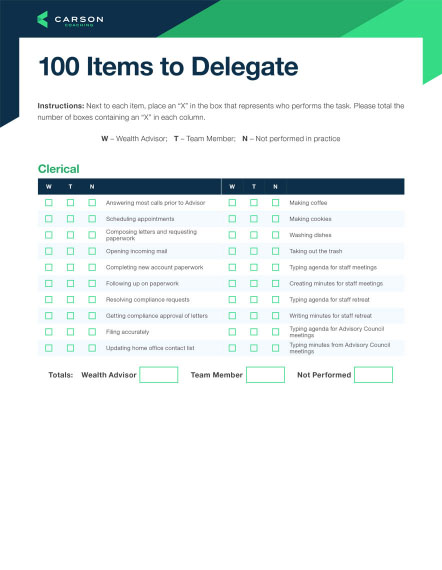In her more than two decades in the financial services industry, Clara Sierra hasn’t had many sponsors.
“I’ve had many, many, many mentors,” said Sierra, who is a senior director at Moody’s Analytics. “But I would say I have only had two sponsors.”
As a woman and as an Afro-Latina, sponsors are few and far between for her, she said. And in her time in the financial services industry, she’s never come across a formal sponsorship program.
She noted that in the past year or so, the difference between mentorship and sponsorship has become a common topic of conversation.
“Mentorship is all the rage,” she said. “Everybody wants to be an ally. Everybody wants to be a mentor. But for someone to put their personal and professional capital on the line for a woman is almost impossible” to find.
Gallup reports that the difference between mentorship and sponsorship is that mentors give you guidance on how to open doors for yourself, whereas sponsors open doors for you. And according to MIT Sloan Management Review, sponsorship involves leveraging your social and reputational capital to champion trusted employees and support their advancement by unlocking promotions, pay raises and other opportunities they might otherwise miss out on. Basically, you’re putting your name and reputation on the line for someone you believe in.
Sierra said that her two sponsors were both men who started on Wall Street at the same time as her. She built relationships with them over the years and they remained connected no matter where their paths took them. The friendship they forged allowed them to see how awesome she was at what she did, and they began to advocate for her to get new positions.
“The uniqueness of it was that it was a mutually beneficial partnership,” she explained of one of her sponsors. “We had a longstanding, mutually beneficial relationship through which he saw my strengths because I delivered and I added value to his work.”
Carson’s 2023 State of Women in Wealth Management Report found that sponsors have played a critical role in helping women in our industry rise and stay in the industry. But in our industry, women are often “over-mentored” and “under-sponsored,” Samantha Ross Saperstein, head of Women on the Move from JPMorgan Chase, wrote in Time Magazine.
It’s time to flip that script to increase the representation of women in wealth management.
Clearing Up the Confusion Between Mentorship and Sponsorship
We didn’t ask any questions about sponsorship specifically on our 2023 State of Women in Wealth Management survey. We did, however, ask about mentorship and found that about 80% of respondents under age 30 and 32% of those ages 30 to 45 are currently working with a mentor. When we looked at it by gender, 35% of women were currently working with a mentor, versus only 11% of men.
In our qualitative analysis, when we asked our participants, “What value have your best mentor relationships provided in your career?” was when we realized that we had some sponsors – not mentors – shaping the success of our respondents.
And while both mentorship and sponsorship are crucial for empowering women in the industry and facilitating their upward mobility, sponsors have a more tangible impact.
When talking about their sponsors in the interviews, respondents indicated that they have had opportunities created for them, their voices amplified, their credibility validated and were offered leadership roles thanks to their sponsor relationships.
One respondent’s sponsor nominated her for an executive leadership program, advocated for the company to pay for it and introduced her to clients.
“Had she not opened doors for me, I don’t know if I’d still be in this industry,” she said.
Another respondent indicated their sponsor brought more visibility to her career.
“He introduced me to influential people, he made suggestions for how I could network with those people,” she said. “He nominated me [for an industry award], emailed his friends and asked them to nominate me, too.”
And while we didn’t ask any questions specific to sponsorship on the survey, we did a follow-up query on LinkedIn to get some insight into what women in our industry consider a good sponsor. The answers fell into three categories: making connections to jobs and people, advocacy and building confidence.
“It’s great to know somebody is in your corner,” another woman told us on our supplemental query. “It helps me have confidence in moving forward.”
How to Be a Good Sponsor
The survey responses from the previous section illustrated some of the elements that make a good sponsor – advocating for advancement, opening doors, reimbursing employees for advancement.
But Harvard Business Review offers guidance on the traits that successful sponsors share:
Show up. When they schedule meetings or say something is going to happen, it happens. One person who gave us feedback noted that her sponsor’s intentionality and ability to show up was what she appreciated most about them.
“We met quarterly outside of the office to talk about both work and personal things,” she said. “He would give guidance there that was more robust and big-picture than the typical boss feedback [and] guidance.”
Forge an authentic connection. Sierra and her two sponsors forged an authentic and long-term relationship and friendship. Having an authentic connection is critical to this relationship.
Offer constructive feedback. Offer feedback to your sponsees without making them feel inadequate. This is especially important if there are things your sponsee needs to work on – such as their emotional intelligence – before you will feel comfortable recommending them for opportunities.
One respondent to our LinkedIn query said they appreciated this aspect the most about her sponsor relationship.
“They provide honest feedback and help me understand what lies ahead – even if it’s not pretty,” she said.
They make dreams come true. Ask your sponsees what their aspirations and dreams are. Then work behind the scenes to make them happen. If you are their manager, create growth opportunities. If you aren’t, Harvard Business Review recommends talking to their manager to learn about what growth opportunities are available to them.
One more point that wasn’t in that Harvard Business Review article to add is:
Move in silence and follow through. This is an extension of the first bullet point. The reason to move in silence is in case things don’t work out. Don’t go to your sponsee and say you’re going to advocate for them to get a new role, and then you can’t deliver because someone above you said no. That erodes trust and can be detrimental to a sponsee’s confidence.
If you have somebody you believe in, just take that active role and start advocating for them behind the scenes today.
“What I appreciated was that I didn’t have to ask these people to sponsor me, they just took an active role as a sponsor,” one respondent to our LinkedIn query said. “For example, if I was at an industry event, they would say, ‘I want to introduce you to this person because xyz.’ I knew they cared about my success even when I hadn’t really done anything in return. They were looking out for me.”
Finding a Sponsor is Playing the Long Game
Recently, Clara Sierra went to leadership on behalf of two young executives to say they were missing out on the potential they brought to the organization. She gave up her spots at upcoming industry events for them to attend instead.
“That’s how strongly I believe in the caliber of their work,” Sierra said. “These two young executives had no idea I’ve done that.”
One of the respondents on our LinkedIn query asked how to go about getting a sponsor. And that’s a complicated question to answer because it takes time. Sponsorship comes from showing future sponsors what you can do and what you are capable of.
“Sponsorship is the Holy Grail,” Sierra said. “Someone is putting their professional and personal capital on the line in support of you. But they’re not going to do it just because you ask them to. This is a long process.”


